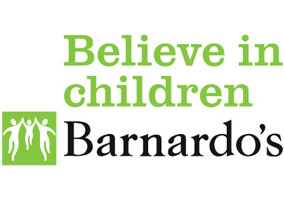Big charities are not prepared to share power with their smaller counterparts, the former chief executive of Barnardo’s has said.
Javed Khan, who led the UK’s largest children’s charity from 2014 to 2021, said that larger charities have historically worked independently but that they should now collaborate more with smaller voluntary organisations to reach more beneficiaries quicker.
He also argued charities needed to better champion diversity and that younger people entering the sector will enable organisations to connect with communities in different ways.
Reluctance to ‘share power’
Khan was speaking to New Philanthropy Capital’s trustee Fiona Rawes as part of the charity’s 20th anniversary essay and interview collection.
Asked whether he thought that larger charities have been typically reluctant to share power with smaller charities, Khan said: “It is generally the case but I’d like to think it’s changing.”
He added: “Large charities [have] been around a very long time and they’ve got ways of doing things which work so why should they change? And it’s part of the challenge. What are the drivers for changing? Because if they can do it on the money, they’ve got the donors, they know how to do stuff, they can reach the beneficiaries in ways that they want to reach them, why [would they] need any help from anyone else?
“What we’ve got to try and do is turn that on its head to recognise that through partnerships between large and small, national and local [charities], you can reach more people, you can reach them faster and you can probably reach them in places that otherwise you wouldn’t get to.”
Collaboration was key to helping vulnerable children
Khan gave the example of Barnardo’s working in partnership with smaller charities to support children “falling through the cracks” during the pandemic.
In 2020, the charity led a consortium of local and national charities from across England to distribute £7m of coronavirus funding made available by the Department for Education. The coalition helped support over 100,000 vulnerable children.
He said Barnardo’s decided to collaborate with smaller charities to quickly respond to the unprecedented challenges brought by Covid-19.
“The proposal we took to the government was novel,” he said. “We went to them and said ‘we don’t want to do this on our own, we want to do this in partnership, we want to develop a consortium of other like-minded charities to help reach these vulnerable children across the whole of the country and reach them fast’.”
He continued: “Within one month, we’d built a consortium of 80 plus charities across the breadth of the country. They came in all shapes and sizes, a highly diverse group of charities. Over 50% of them were led by non-white leaders, which is rare. Some of them were very small charities that came together. Ours was the lead organisation but others took responsibility in terms of the contractual relationship with the government.
“That proved to be particularly helpful to the smaller charities, which had no experience of operating at this level with government. And what it turned into was a highly successful consortium approach to reaching highly vulnerable young people over a period of time.”
However, Khan pointed out that it was not easy to convince smaller charities to get on board.
“Trust takes time and investment, [you’re] probably going to get it wrong before you get it right, and there’s a history of lack of trust. Smaller charities didn't believe what the offer was. They needed some convincing that there was this very large national charity that wanted to invest in the local players. They weren’t used to it, there’s no kind of history of that happening. We had to go back and back again to develop that trust. So it’s hard work.”
The sector needs to move to ‘interdependence’
Khan suggested that “interdependence should be the watchword in the future”.
He said: “I think the next 20 years will probably happen faster than the last 20 years. We’re going to need to move beyond traditional partnerships and collaboration and move to interdependence.
“That’s far more powerful because interdependence isn’t based on size, scale and money. It’s about recognising that one partner’s existence and the ability to deliver relies as much on other people within that ecosystem to exist and deliver as it does on themselves and understanding how each other’s shoes pinch.”
He added that diversity and a younger workforce will be invaluable for charities to widen their reach.
“I think diversity is going to be critical,” he said. “That’s diversity in our people, our practice, cultural intelligence and how our sector will be led and driven.”
“The new models of charities, how they’re going to be set up, will change and it will be driven by younger people who will connect with communities in ways that we haven’t discovered yet.”
Khan concluded by saying that charities need to achieve “cultural competence”.
He said: “This is recognising that the world we live in is an increasingly diverse world and that pace of change is increasing rapidly. And this isn’t just about Black, brown and white faces. I’m talking about more subtle cultural nuances that exist in our communities where it is going to over time become much more difficult to pigeonhole people into traditional ethnicities and make that the driver for diversity.
“How do these service providers, the charity sector and civil society respond to that when our workforce is by and large still pretty monocultural, middle class and largely female?”
Related articles












